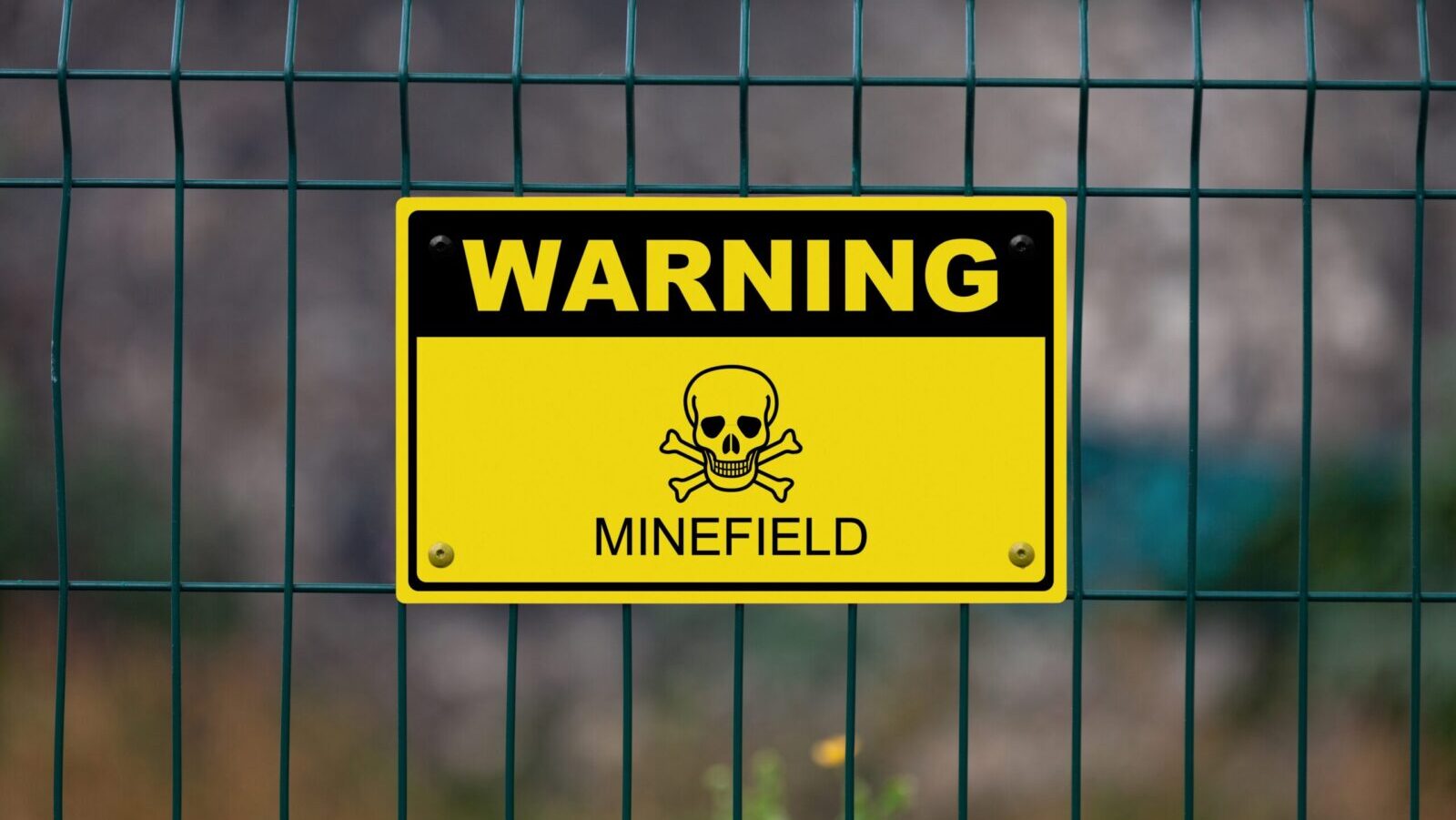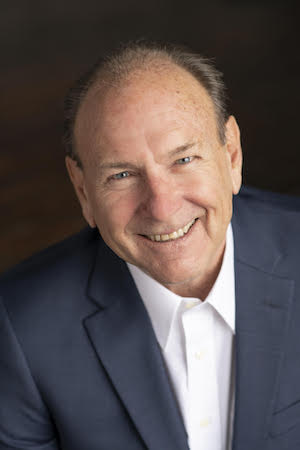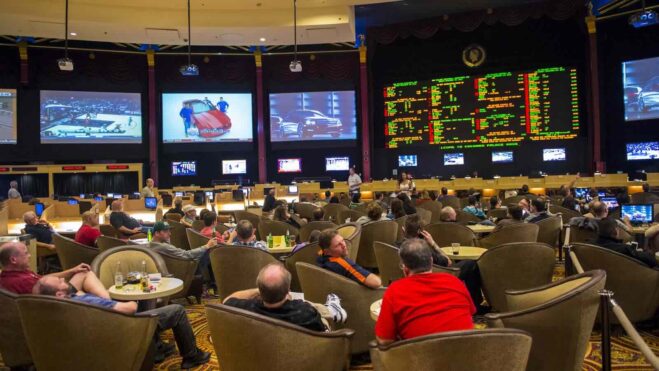Schuetz: US Sports Betting Regulators Can Either Heed Others’ Lessons, Or Step On Land Mines
Brian Chappell observes that, in many ways, the betting operators and the government have highly aligned goals, which is problematic.
5 min

I was once advised by someone I looked up to on how to approach a situation that possessed a high degree of uncertainty and risk. The advice I received was, “If you are ever going to be walking through a minefield, it is best to follow someone who has been out in that minefield for a long time. That is how you reduce the chance of getting yourself blown up.”
In that regard, I again introduce my friend Brian Chappell.
Brian lives in the U.K. and has made a 10-year-plus commitment to understanding commercial sports betting, especially as it operates in internet applications. He has primarily focused on the U.K. situation but has been involved to a degree in Australia and some of the EU countries. He has also been keeping an eye on the U.S. development and suggests that he is seeing a great many similarities with the U.K. experience, and he perceives this as a problem.

My backstory with Brian is that he tracked me down on X (Twitter), and he made a few comments. We then organized a Zoom call, and we spoke of his experience developing a U.K. organization to assist bettors, known as Justice for Punters. I wrote about this last week in a column that explored what Brian calls the “Ban or Bankrupt” model of U.K. betting (and beyond), where the skilled bettor is banned or heavily limited, and the weak better is fed endless betting inducements and limit increases.
As I noted in that prior article on Brian and his dedication to Justice for Punters: “This effort was undertaken not as a profession but as a passion. It was volunteer work. As Brian relayed to me, ‘All we wanted was for the gambling industry and its regulators to play fair and tell the truth.’ He argued the whole key was transparency, and it appears that the online sports betting industry avoided transparency like the plague.”
Following the publication of this piece, I organized another visit with Brian. The agenda for this discussion was to explore whether there is anything he would like to forward by way of insight and advice to those regulators in the U.S. who have a great deal less experience in how modern sports betting works. My thinking was that Brian had been wandering about in that sports betting minefield for a very long time, and possibly, he might share some of his insight with the U.S. regulatory community. Brian welcomed this request.
The problem with common goals
Brian sees the business model used in the U.S. as a situation where the operators advertise and bonus like crazy to generate traffic to the site. The operators then continuously grade this pool of players and eliminate the good players by banning or limiting them. They then work to extract the maximum amount from the remaining players by working to understand which types of inducements trigger them best — and working to ensure that they understand that they can increase their limits if they need some help getting out of the financial hole they have dug themselves into.
Brian addressed that, in many ways, the betting operators and the government have highly aligned goals, which is problematic. That is, the operators want to squeeze every bit of profit from the operation of the business, and the government has this same goal in that it is in a profit-sharing arrangement with the operators through the gaming tax. The problem with this, however, is that this can lead to ban-or-bankrupting solutions, and the vulnerable within the system can be totally crushed to maximize profits for the firms and maximize tax revenues for the government.
If the jurisdiction is cool with this, it needs to do little. If it finds a model that drives bettors to non-regulated solutions and crushes the vulnerable, however, it will have to roll up its sleeves and develop ways to mitigate these damages.
Brian also noted that the operators would often trumpet their great earnings, the jurisdiction would applaud the new record tax collections, and the gaming lobbyists (whom Brian seems to hold in high disrepute and in sync with liquor, smoking, payday loan, and pharmaceutical lobbyists) would do their talking-head thing and parrot whatever the industry wanted them to parrot, often accompanied with a load of junk science. Brian sees lobbyists as designed to impede change and fabricate research. The whole point is that when revenue is maximized and so therefore are taxes, the industry and government entities cheer — failing to understand the damage that has potentially been done along the way.
In short, Brian suggests that the jurisdiction must regulate and legislate an environment that safeguards unrestricted profit maximization so that bettors are not driven away from the regulated sites. Moreover, controls will need to be present to protect the vulnerable.
Out of the shadows
Brian talks about how Australia worked to secure minimum betting laws (MBLs), where operators are required to allow a defined wager size. He admires certain efforts to develop impartial and knowledgeable ombudsmen in some jurisdictions to investigate and settle complaints. However, he would like to see something like an ombudsman effort to investigate the exploitation of certain customers. Through his website, he became alive to a great many players whose situations could only be explained by the concept of exploitation, and it seems that no one is looking out for these folks.
Brian argues that the operator’s terms and conditions are something of a joke, and these need immediate attention. He suggests they are opaque and confusing. They go on forever and act more as a parapet wall of unintelligible protection for the operator than as a guide to good operational controls and governance. The regulators should be embarrassed they allow these to exist in their present state.
Brian contends that the operators are generally highly intelligent and know much more about the business than the regulators. For this reason, the regulators need to insist on transparency, understanding that the operators will work to exaggerate the complexity because they want to operate in secrecy. Secrecy is cool, keeps the regulators at bay, and hides many sins. The point is that Brian recommends that regulators need to destroy that secret veil.
Brian is also critical of the fining of the operating entity in a disciplinary process. One wonders about the remedial effects of fining a business’s shareholders, who may not even be in the same country. It is Brian’s contention that since many of the top executives of these firms need to be licensed by the regulator, these people should be fined and/or removed from their positions when there are problems. They seem willing to take credit for the good things that happen; it is only logical that they be held responsible for the screwups. He also believes this will usher in a whole new level of corporate responsibility.
To end our conversation, I asked Brian if he had one last statement he would like to make to the U.S. regulators to help them through the minefield. His reply:
“You have to regulate and legislate with force, or you will not have a transparent, fair, and safe as possible market.”
Thanks, Brian.
Richard Schuetz entered the gaming industry working nights as a blackjack and dice dealer while attending college and has since served in many capacities within the industry, including operations, finance, and marketing. He has held senior executive positions up to and including CEO in jurisdictions across the United States, including the gaming markets of Las Vegas, Atlantic City, Reno/Tahoe, Laughlin, Minnesota, Mississippi, and Louisiana. In addition, he has consulted and taught around the globe and served as a member of the California Gambling Control Commission and Executive Director of the Bermuda Casino Gaming Commission. He also publishes extensively on gaming, gaming regulation, diversity, and gaming history.






